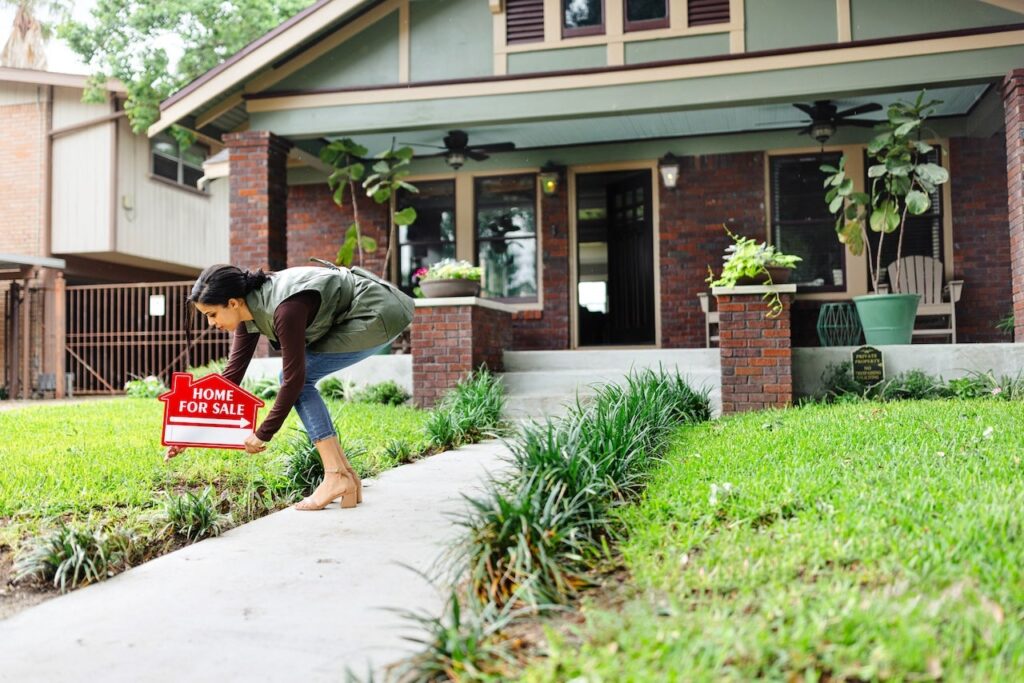Home prices have been on the rise throughout the country over the past year, and America’s Dairyland is no different. With sale prices up around 9 percent in Wisconsin, per Redfin data, you may be thinking you can make a lot of cash by selling your home here. However, there are a number of costs associated with selling a house to consider first. Here’s what to know about the cost to sell a house in Wisconsin.
Sellers’ closing costs
Home sellers in all states, including Wisconsin, will have to pay some form of closing costs before the deal can be finalized. Common seller closing costs include:
- Transfer tax: Like many states, Wisconsin levies a real estate transfer tax that is typically paid by the seller (though it can be negotiated). The rate is 30 cents for every $100 in value — for a $300,000 home, for example, that would come to $900.
- Title-related fees: Title insurance protects against problems with the home’s ownership; in Wisconsin, the seller typically pays for the buyer’s policy. There may also be a fee to run a title search on the property.
- Escrow fees: An escrow account is often used during a real estate transaction to manage any funds exchanged between the buyer and seller, and there may be a fee to manage the account.
- Property taxes and HOA fees:You’re still the homeowner up until closing day, so you have to pay for all costs associated with the property up until then. That includes state and local property taxes as well as HOA fees, if applicable.
- Seller concessions: If you offered any incentives as a part of the listing, such as covering some of the buyer’s closing costs, you will need to pay these costs at closing as well.
- Attorney fees: Wisconsin law doesn’t require sellers to hire a real estate attorney, but it’s a good idea to have a lawyer look over your contract and paperwork anyway. It’s worth the cost to make sure your interests are protected in a financial transaction this large.
Real estate agent commissions
Your real estate agent’s commission fee will likely be one of the highest selling costs. Agents typically earn somewhere between 2.5 percent and 3 percent of the home’s sale price.
August Redfin data shows that the statewide median home sale price was $327,800. At this price, a 2.5 percent commission would total $8,195. Keep in mind that this number can vary greatly depending on how much a home sells for. For example, in Milwaukee the median price was $225,000, which would equate to a lower commission of $5,625 — but in Madison, where the median was a higher $408,000, that number would be $10,200.
It’s important to note that many sellers pay their buyer’s agent’s commission as well (though some buyers will pay their own agent directly, depending on the contract details). If this is the case for you, those dollar amounts would double.
Home prep and moving costs
Before you even list your property, you may need to spend some cash to prep it for the sale. Think about any repairs that need to be done — that leaky faucet you never got around to fixing or patching a hole in the drywall, for example. Consider upping your curb appeal with a fresh coat of exterior paint or new landscaping, too. It’s all about making your house look its best for prospective buyers.
And don’t forget to factor in the cost of moving. Moving costs average around $1,700, according to HomeAdvisor, but they can be more or less depending on how far you’re moving. Long-distance moves can cost considerably more.
How much do I get from selling my house?
Your net proceeds are the total amount of cash you actually pocket after covering all the expenses of selling. These expenses include closing costs, Realtor fees and paying off your existing mortgage, if you have one — add them all up, then subtract that total from the home’s final sale price.
Reducing costs
If you’re looking for ways to save, there are lots of options to consider. For example, any project you have the skills to take on yourself can save you the cost of hiring a professional. If you don’t want to pay for any upgrades or repairs at all, you might even consider selling the home as-is, which means the buyer agrees to take on the home in its existing condition (this might fetch a lower price, however).
You can also try negotiating to see if your agent will accept a slightly lower commission fee — even a small reduction can result in serious savings, especially for a higher-priced home.
Alternatives
If you’re not sure whether a traditional sale is right for you, consider these alternatives:
- Cash-homebuying companies or iBuyers: If you need the proceeds from the sale quickly, local homebuying companies make all-cash offers and can close much faster than a typical sale — usually within a couple weeks or even less. You will likely make less from the sale than you would with a traditional listing process, though.
- For sale by owner: Up for a challenge? Selling your house on your own, without an agent, means saving a listing agent’s commission fee. But it also means taking on all the responsibilities an agent would normally handle, including research, marketing and negotiating. It takes a lot of time and energy.
- Home equity: If you need cash but you’re not ready to let go of the property, consider tapping into your equity with a home equity loan or line of credit.
- Renting: If you have another place to live, you could also rent the home to a tenant instead of selling it. This has the potential to bring in steady monthly rental income.
Next steps
Selling your Wisconsin home is a big undertaking, and it can cost more than you might think. If you’re ready to sell, start by reaching out to a knowledgeable local agent. A pro will know your market well and be able to guide you through the home sale process from start to finish.
FAQs
Read the full article here
















